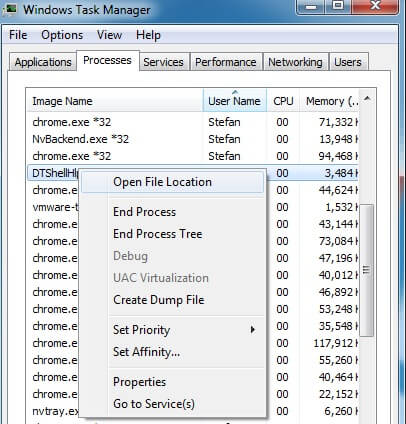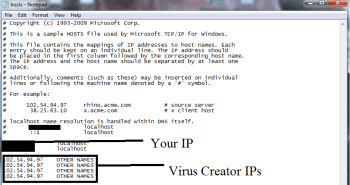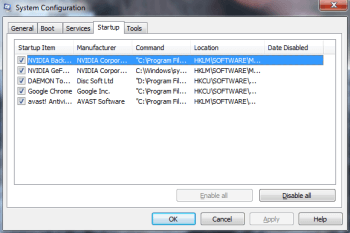
*Mzqw is a variant of Stop/DJVU. Source of claim SH can remove it.
Mzqw
Mzqw is a ransomware virus that can encrypt the files that are stored on a computer and ask the owners to pay ransom in order to decrypt them. Mzqw can sneak inside a system secretly and can operate under the radar of most security programs.

If you landed on this page because Mzqw has prevented access to some of your most important files, then, sadly, you’ve been infected with one of the most harmful types of ransomware out there – namely, file-encrypting ransomware. What this malware does is it secretly invades your system, scans your hard drives and searches for the files you regularly use. Next, it places an encryption code on each and every one of these files, in this way rendering them inaccessible without the application of a special decryption key. After the file-encryption process is complete, the ransomware generates a very disturbing message on your computer to notify you that your data has been locked and you are expected to pay a certain amount of money as ransom.
The Mzqw virus
The Mzqw virus is a ransom-demanding infection belonging to the ransomware class that encrypts user files and holds them hostage for ransom. It is typical for the Mzqw virus to display a ransom notification on the screen of its victims and to ask for a cryptocurrency payment.
Ransomware viruses like Mzqw, Pouu, Poqw can be found all over the web. They get distributed via torrents, fake ads, malicious software packages, spam messages, and even infected email attachments. Regardless of how it enters the system, the ransomware rarely gets detected by the security software and typically manages to remain under its radar until it completes its agenda. What is even more worrying it the fact that such malware is normally paired up with a Trojan horse. That’s why, when trying to deal with an infection like Mzqw it is very important not to forget to check the system for a hidden Trojan and remove it as soon as possible.
The .Mzqw file encryption
The .Mzqw file encryption is a process that is carried out in the background of the system and is aimed at blocking access to a list of user files. The .Mzqw file encryption can rarely be intercepted as it typically manages to remain under the radar of most security programs.

You should keep in mind that there is absolutely no guarantee that your files will be restored after the attack of Mzqw. This being said, it practically doesn’t matter whether you pay the ransom or not. In case you still decide to fulfill the hackers’ demands, you should be prepared that the crooks who are blackmailing you may simply vanish with the money. Or they may decide that you are willing to pay more for your files and ask for a higher ransom amount before they send you a decryption key that doesn’t work. On the other hand, it may be challenging even for advanced security specialists to remove the ransomware virus entirely and to recover the records. That’s why our recommendation is to read this article and then make an informed decision for yourself.
A few notes on our removal guide
The removal guide below is designed especially for those of you who want to remove Mzqw from their system urgently. The guide contains manual steps that require great attention to detail and a certain level of computer literacy. Please note that the attached file-recovery suggestions are free to use but we cannot guarantee that they will work in all cases.
SUMMARY:
*Mzqw is a variant of Stop/DJVU. Source of claim SH can remove it.
Remove Mzqw Ransomware

Several system restarts will be necessary to complete this guide’s removal process. Make things easy by bookmarking this page in your browser from the start, so that you can return to it with a single click.
Afterwards, you should reboot the computer in Safe Mode by using the instructions from this link, and then come back to this current Mzqw removal guide and start the actual Mzqw removal steps.

WARNING! READ CAREFULLY BEFORE PROCEEDING!
*Mzqw is a variant of Stop/DJVU. Source of claim SH can remove it.
Ransomware like Mzqw may hide its dangerous activities in the background of infected computers, so you need to be aware of this if you’re dealing with this kind of malicious software. In the instructions that follow, you will learn how to identify and stop these processes.
Press CTRL + SHIFT + ESC to open the Task Manager and then when the window opens, click on the Processes Tab at the top.
Look for processes with peculiar names and if anything catches your eye, right-click on the suspicious process and select “Open File Location” from the pop-up options.

Then, using our free virus scanner, verify the files of that process and, if they are harmful, immediately End the process and remove the files. You can end a process by right-clicking on it in the Processes tab and choosing the End Process/End Process Tree option.


In the third step, use the Start Key and R key combination and copy/paste the following line in the Run window:
notepad %windir%/system32/Drivers/etc/hosts
Click the OK button to open the Hosts file. Carefully check the text of the file for questionable-looking IP addresses. These could typically be found under Localhost.
Don’t be quick to delete anything that’s out of the ordinary, but please write to us in the comments so that we may have a look at the IPs in question and give you advice on how to proceed.

Next, type msconfig in the Start menu search field and open the System Configuration app from the results. In the System Configuration window that appears, choose the Startup tab and take a look at the startup items listed there.

If a Startup item appears suspicious, or you think that it might be linked to the ransomware, do a quick research online and uncheck the checkbox for that item if you find out that it is dangerous.

*Mzqw is a variant of Stop/DJVU. Source of claim SH can remove it.
To complete the Mzqw removal process, open the Registry Editor (in the Start menu search bar type Regedit and press Enter).
Next, with CTRL and F, open a Find box and type the ransomware infection’s name in it. Then press the Find Next button and see if there are any results that are matching that name. Make sure you delete any registry entries with that name from the Registry if you find any.
Attention! Remove files and directories from the registry with extreme caution and use a professional removal program if you are unsure, since removing genuine entries might cause significant system problems.
Next, once you are sure that the registry is clean, we recommend that you search the following locations for any leftover ransomware-related files. To do that, simply copy each of the five lines listed below, including the % sign in the Start menu search bar and press Enter:
- %AppData%
- %LocalAppData%
- %ProgramData%
- %WinDir%
- %Temp%
Search each of the locations for newly added files and folders that may be associated with Mzqw. Remove any temporary files that the ransomware may have added in the Temp folder by selecting them all and deleting them.

How to Decrypt Mzqw files
Depending on the variant of ransomware that has infected your computer, the process of decrypting encrypted data may require different tools and steps. The ransomware’s version may be determined by looking at the extensions that have been added at the end of the encrypted files.
New Djvu Ransomware
The STOP Djvu ransomware is the newest Djvu ransomware variant that is targetting users actively. To help victims identify the virus, they should look for the .Mzqw suffix at the end of their encrypted files. Currently, the only way to decode data encoded by STOP Djvu is if those files were encrypted using an offline key. The following decyprot tool could be used to help you with decrypting your files:
https://www.emsisoft.com/ransomware-decryption-tools/stop-djvu
To get the decryptor, you can download the STOPDjvu.exe file by clicking the Download button in the top right corner of the window from the link.
To start the decryptor, you need to run it as Administrator and then press the YES button. Once you’ve read the license agreement and the brief instructions, click the Decrypt button to begin the decryption process. Be aware that this decryptor cannot decode data encrypted with unknown offline keys or online encryption.
Note! For removing Mzqw and other malware, you should use professional anti-virus software, such as the one on this website, or use the free online virus scanner from this link to scan any suspicious-looking files. Also, please write to us in the comments if you have any issues with any of the steps in this removal guide, and we’ll do our best to assist you.

Leave a Reply